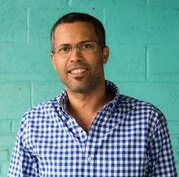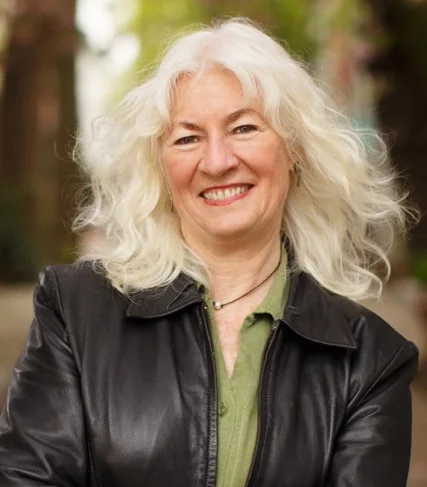Policymakers, philanthropists, social entrepreneurs, and impact investors frequently comment that we need evidence-based strategies to tackle social and environmental challenges effectively. The call for more thoughtful evidence-use has recently hit a crescendo in impact investing, with high-profile actors showcasing methods for incorporating secondary research into due diligence.
Read MoreImpact investing has existed for a substantial amount of time, but it has not been fully embraced by the investment community and, to many, is still not considered a mainstream investment practice. While there are signs that its adoption is increasing, there are several barriers, both real and perceived, that have slowed its adoption. This paper will present some of the key reasons for impact investments’ slow adoption. It will provide background on the industry and discuss specific factors causing its slow adoption. This paper will then provide several principles aimed at furthering investors’ understanding of impact.
Read MoreWhen we announced the PhilaImpact Fund a year ago, we noted that it was created to fill a gap, offering a safe, smart direct investment opportunity tailored specifically to the Greater Philadelphia region. Our goal was to ensure that the opportunity gaps that exist in our communities get smaller, so that every resident has a chance to thrive from possibilities born from the region’s vibrancy. The results to date have been inspiring.
Read MoreAlthough the Philadelphia region is home to some of the world’s finest hospitals that deliver best-in-class health care, many of our communities still suffer from the lack of access to care. Equal access to health care can be—must be—more than an aspiration; it must become a fact of life. Impact investment has the potential to help make high-quality care available to all. Let us work together to transform our best intentions into real solutions that benefit all who live in our region and in our nation.
Read MoreIn the United States, eighty-seven thousand foundations collectively own approximately $800 billion in assets. Each year, these foundations - financial institutions established for the public good - have a federal obligation to give just 5% of those assets toward achieving their mission. The remaining 95% of assets are traditionally invested in Wall Street, to preserve and grow the foundation's endowment and, consequently, ensure their capacity for philanthropic giving in perpetuity. In other words: foundations generally invest 5% for mission-first outcomes and 95% for finance-first outcomes. It is my resolute belief that challenging and changing this status-quo is not only philanthropy’s greatest 21st-century opportunity but our most critical obligation.
Read MoreDrexel University has taken on a mission as an engaged anchor institution with a substantial role and set of responsibilities in the life and local economy of West Philadelphia. One of our key strategies is to integrate this outward-looking perspective into our core academic functions through comprehensive supports for civic engagement. The Dornsife Center for Neighborhood Partnerships, part of Drexel’s Office of University and Community Partnerships, offers a hub for doing academically rigorous work that is creative, collaborative, responsive to the needs and interests articulated by residents and neighborhood stakeholders, and generates benefits for both students and residents.
Read MoreInvestments into Opportunity Funds offer attractive tax benefits, while catalyzing capital inflows into economically distressed communities. However, prudence is necessary in evaluating these investment opportunities as they come to market. The tax benefits will not outweigh the negative consequences of a bad investment. Moreover, large numbers of investment opportunities have not yet materialized. While the initial round of IRS guidance has answered some questions, additional information, expected shortly, is necessary, and then firms will need time to evaluate and identify qualified investment opportunities before launching investment funds. Currently we assume that there will be Funds available for investment in 2019. While questions remain, Opportunity Zones offer an exciting space to monitor and evaluate for tax-sensitive and impact investors.
Read MoreMost low-income communities in the U.S. have access to an important resource that few people outside of these communities know: a CDFI (community development financial institution). CDFIs are private community lenders dedicated to delivering social and economic impact by providing responsible, affordable financing to disinvested people and communities. Why are CDFIs important? If you live in a community whose streets are dotted with check cashers, liquor stores, and blighted buildings, chances are there are few if any bank branches and very little investment overall. Without access to capital, residents can’t start or grow a business, purchase or rehab a home, or oftentimes, have access to quality childcare and healthcare facilities. CDFIs provide access to capital that creates opportunity and leads to real change that wouldn’t otherwise be possible.
Read MoreIn the last year, two unique opportunities brought the potential to drive significant new investment in cities across the country. First, Amazon announced their search for a second corporate headquarters (“HQ2”) which is projected to employ up to 50,000 employees over the next fifteen years. More than 238 cities and regions submitted proposals, and 20 candidate cities (including Philadelphia) were ultimately selected by Amazon to compete in a next phase. Amazon eventually decided to split its second headquarters into two locations and chose New York and Northern Virginia for its next stages of growth.
Read MoreIn pursuit of deeper impacts, social sector investors have begun to explore different permutations of Program Related Investments. Intermediaries play an important role in facilitating PRI loan funds however, this often raises the cost of capital to a price equal to or exceeding market rates. Direct PRI loans could unlock significant savings yielding new programmatic investment, financial stability, and ultimately, deeper impact.
Read MoreThis story begins in 2002 in the western suburbs of Philadelphia. Clemens and a small group of colleagues saw the need to create a conscious and sustainable world through engaged philanthropy and had the vision to align practice with purpose – at the individual level, in the community, and on a global scale.
Read More54.46% in poverty
27.56% unemployed
209 deaths from overdoses in 2017
These are the sobering statistics of Harrowgate, a Kensington neighborhood north of Lehigh Avenue, that is only 15 minutes north of Center City on the Market-Frankford subway line, and three subway stops away from Fishtown – “the hottest neighborhood” in the United States according to Forbes magazine.
Read MoreWhat comes after innovation? As CEO of Benjamin Franklin Technology Partners, an organization charged with catalyzing the Philadelphia region's entrepreneurial and innovation economy, I've struggled with this question. It was 2001 when I began to follow the emerging national narrative around impact, marked by Harvard Business Review's January 2001 issue: Ideas with Impact - an issue I still have to this day. In it, an article by Charles Handy entitled "Tocqueville Revisited: The Meaning of American Prosperity." revisits Tocqueville's journey, but focuses on capitalism instead of democracy. Handy writes of the need for "new capitalism" and discusses American Nobel Prize Winner Robert Fogel's optimism that "a new sense of purpose…will be at the heart of the next stage of capitalism." The idea resonated with me then and stayed with me over time.
Read MoreAlthough community development finance has primarily built its foundation around real estate investing, we have learned that in a city like Philadelphia, neighborhood revitalization does not always empower local residents to move up the economic ladder but can often lead to displacement through gentrification. An impact economy requires both growth AND mobility, and thus, our strategies must include a focus on both improving places AND empowering people. To this goal, an effective impact capital strategy is about more than just building and investing financial and physical capital. We should also consider how we build and invest in human and social capital in our city.
Read MoreTo date, many innovative education technology products and services have not been adopted by schools or have failed to achieve scale. One reason for this lack of adoption and implementation is the disconnect that often exists between educators and entrepreneurs. Practitioners often receive inadequate information about new tools and their capacity to enhance instruction, which further impedes implementation. In addition, the limited amount of time and resources that most practitioners encounter on a daily basis, including insufficient professional development on how to use new technologies, further impedes adoption rates.
Read MoreMany who hear “Habitat for Humanity” have some familiarity with Habitat for Humanity's affordable housing work, the phrase “a hand up, not a handout,” and President Jimmy Carter and his wife, Rosalynn Carter's the tireless commitment to the organization over years. However, few are aware of our furniture and home goods social enterprise, ReStore, that infuses dollars into our Homeownership and Home Repair Programs - two programs that provide affordable payment options, sweat equity, and volunteer labor opportunities for low-income populations that have housing needs in Philadelphia.
Read MoreAt the Wharton Social Impact Initiative, we focus on how businesses and finance can be leveraged to drive inclusive economic development. Over the last decade, we have noticed a dramatic increase in the number of investors seeking to achieve financial returns as well as measurable social or environmental impact across their investable assets. This approach to investment – generally known as “impact investing” – takes many forms across asset classes, impact sectors, industries, and geographies. And, the growth in impact investing is leading to a range of partnerships, approaches, and funding strategies.
Read MoreAt the Total Impact Conference in late April, The Philadelphia Foundation and Reinvestment Fund announced a joint initiative named PhilaImpact Fund. This impact investing vehicle will allow each organization’s investors to fund development projects in Philadelphia and the surrounding counties. The PhilaImpact Fund connects investors, philanthropists and engaged citizens with the projects, initiatives and big ideas that generate results on a local level.
Read MoreOver the past several decades, investors, economists, and business owners alike have acknowledged the need to move from shareholder capitalism to stakeholder capitalism. Research shows that Millennials seek meaningful work and investments that make money and make a difference. And since Millennials represent 50% of the global workforce and will inherit $40 trillion in the coming decades, they will shape labor and capital markets like no other generation. The existence of this trend raises important questions that B Lab's Liz Fernandes explores in this Perspectives piece.
Read MoreThe Circle of Aunts and Uncles is a group of 35 members that seeks to build local self-reliance by supporting, mentoring, and providing low interest loans and social capital to aspiring entrepreneurs in Philadelphia. The group has loaned out more than $100,000 since 2015 with priority given to entrepreneurs who demonstrate financial need, are from a historically marginalized population, aspire to implement eco-friendly business practices, and plan to maintain local independent ownership.
Read More



















